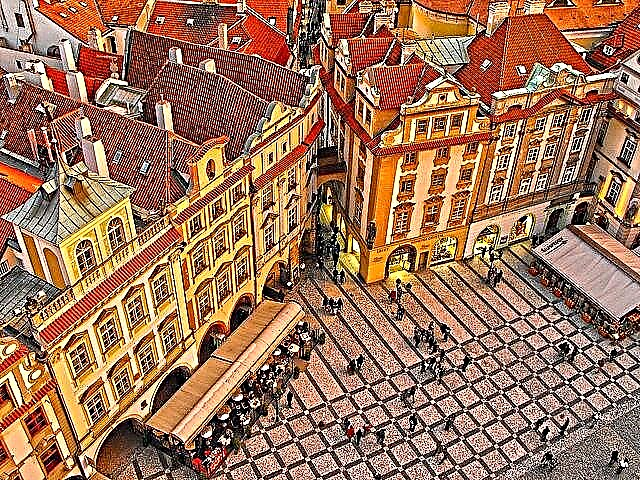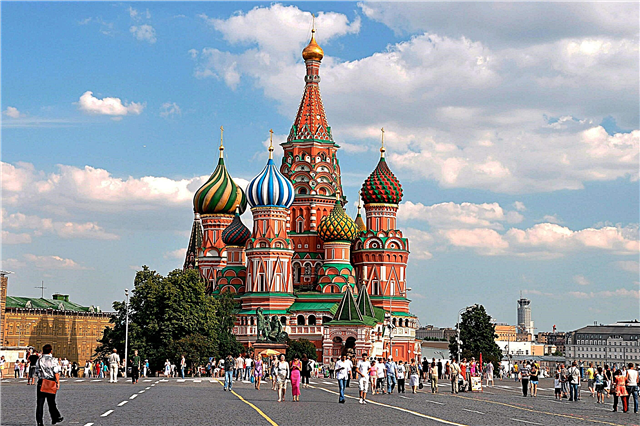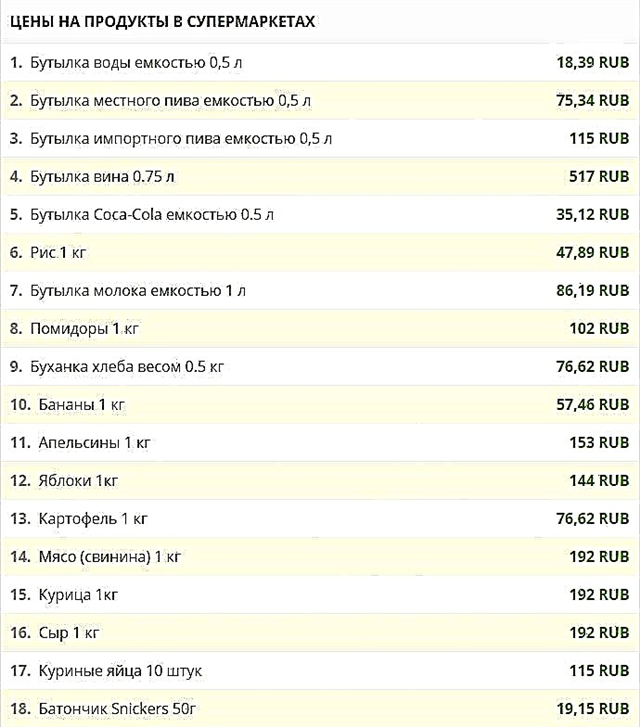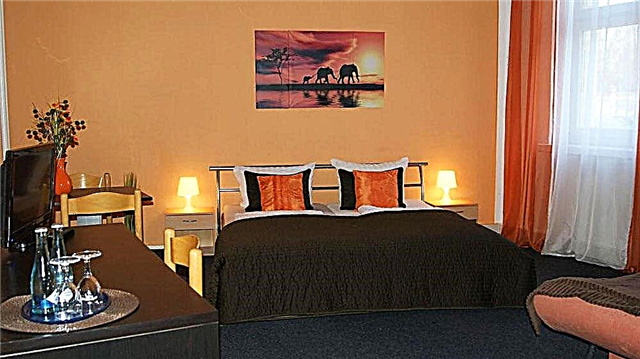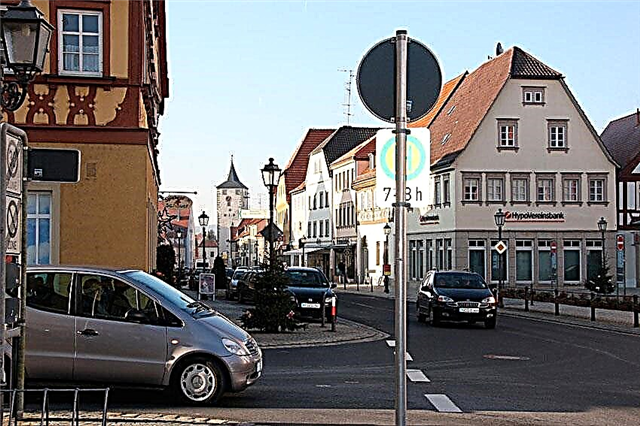Let's find out from my constant reader Daria Maksimova how life is now in Germany and is it worth it for a Russian to move to live abroad? Is everything as good as we are shown in films and magazines? Daria titled her article “In Search of Happiness. Will foreign countries help us? "
As you know, in someone else's frying pan, potatoes are tastier, and abroad - the skies are bluer. So it seemed to me too, until I moved to live in Germany ...
At first I went to Europe just as a tourist. I walked the beaten paths, admired the landscapes and did not even think about emigration. Although there were close relatives living in Germany who had left along the "Jewish line", and they constantly called my parents and me to their place: "It is impossible to live in your crazy Moscow!"
But I loved my city with its restless rhythm of life (probably because I myself was restless), noisy streets, stupefied by people and cars; I loved my profession - I worked as a journalist; I loved my friends - I was friends with some since kindergarten ... But once my mother stunned me with the news that she and her father were thinking about moving to Germany for permanent residence: “We want a calm old age and stability. And then, we have relatives there. We should be together".
Should you move to live abroad?
To say that I was in shock is to say nothing. How is it that they “have to be together”? And I? We will live in different countries ?! - You will go with us. Nothing keeps you here. - Mom, it seems, has already decided everything. - Wow! I exploded. - Actually, I have friends here, a job, a loved one! - Your loved one will never marry you - he is married, - snapped mom. - Friends have had their families for a long time. And work ... You will find yourself something there too.
I didn't fall asleep that night. Maybe, really, spit on everything and leave? What if it will be better there - both in everyday life (my parents and I were crowded together in a tiny kopeck piece), and in love? Mom told the truth - I have no future with my man. He will never leave his family. Yes, I myself will not allow - he has two children. By my departure, I can finally put an end to our protracted romance.
And parents in Germany will be better: excellent medicine, relatives, the opportunity to see the world (with their beggarly pensions one could only dream of this, but they refused to travel with my money). I know German at the everyday level, French and English - fluently. We will not be lost! It took a long time to prepare the travel documents. But after a few months we were still given the go-ahead, and we ended up in Germany.
They settled in a quiet, provincial town where Uncle Borya lived - my mother's brother. I plunged headlong into the arrangement of the apartment. More precisely, apartments - my parents and I lived on the same staircase: they were in a two-room apartment, I was in a studio. So the living conditions were excellent. Furniture in the literal sense of the word was brought from the street - the Germans had a tradition on certain days to expose unnecessary interior items next to the house.
So we “bought goods”. By the way, the interior is decent. Well, I love my new life! However, it was hard to get used to many things. For example, you shouldn't make noise here in the evening. Otherwise, neighbors may call the police. Therefore, returning home late, I walked up the stairs on tiptoe, talking in an undertone at home (we had a terrible audibility, and I naturally had a loud voice).
Order is the main thing Another "ambush" for me was sorting garbage. I, accustomed to dumping everything in one heap, could not get used to the fact that the garbage needed to be "dismembered": the foil lid had to be thrown into one bag, the paper wrapper in another, the plastic bottle in the third. And then these bags had to be thrown into the correct containers: food waste - for food, plastic - for plastic ...
I was confused several times, until the neighbors made a remark to me: "Because of you, the whole house will be fined." It pissed me off. - And how did you want, dear? - Uncle Borya chuckled. - You're in Germany. Ordnung muss sein - order above all. You will get used to it. You are not the first, you are not the last. But I just couldn't get used to the "ordnung". People like me probably need to be taken out for permanent residence in early childhood, so that all these rules are taken for granted.
Or retired, when there is neither the strength nor the desire to challenge them. It was not easy for me so far. Although I tried my best to fit into this life and become mine. But soon problems with adaptation seemed childish to me - my dad was diagnosed with cancer. - There is excellent medicine! - our uncle encouraged us. - Not like in Russia. Medicine really turned out to be excellent.
Good doctors and nurses, there are all conditions in the ward: a toilet, a shower, a TV, a bunch of smart equipment that monitored my father's condition around the clock. It just didn't help - six months after the operation, my dad died. It was a terrible tragedy for me. Dad protected me all my life, like a little one. Even in my 30s. A couple of months before his death, I came from Holland (went to get some air on weekends) and found my dad in my apartment: “You have a dangling door on your kitchen cabinet here, I decided to fix it”.
But he already had difficulty walking ... While he was repairing, I ate ice cream and corresponded with someone on social networks. Idiot, it would be better if she put my father to bed ... The feeling of guilt did not leave me. Why didn't I realize earlier that something was wrong with my dad? Why didn't you take me to the doctor? Perhaps he would be alive now ... Mom was even harder than me. She went to her father in the cemetery every day, staying there until the evening.
This worried me very much - I saw that she was in a terrible depression, but I could not be with her all the time: I was offered a job in a local newspaper for emigrants. Of course, compared to what I did in Moscow, it was the level of a wall newspaper, but there was nothing to choose from. Even though I spoke German, it's one thing to communicate in a pharmacy or a store, and quite another to write notes. The new job did not bring me either joy or satisfaction.

Loneliness and emptiness
Only now I realized that my move had become a continuous downshifting: I used to live in a metropolis, now I lived in a tiny town, I used to have an interesting job, now it’s not clear what, I used to communicate with the smartest people, now I discuss seasonal and off-season sales with emigrants. From loneliness and hopelessness, I wanted to howl. But there was no one to cry.
I had no friends here - only acquaintances. There were, of course, Moscow girlfriends, but you won't cry on Skype, will you? And how can they help me? - You need to get married, - with these words my mother once met me from work. - You’re something completely sour. Aunt Bella recommended a wonderful young man. Mikhail, 35 years old, IT specialist, not married. From an intelligent family.
Looking for a girl for a serious relationship. - You're just like a real matchmaker ... - I grinned. - Do not interrupt. - Mom's eyes became prickly and angry. - Tomorrow at six he will come to us. Go, dear, to the hairdresser, do yourself a decent hairstyle. Mom had this way of talking, as if giving orders. It annoyed me terribly.
But now I did not begin to sort things out - the most interesting thing was to look at this Mikhail. Probably bald, fat and narrow-minded, since he cannot find a girl. It turned out - an intellectual and neat. And outwardly wow. Lives in Germany since childhood. Knows five languages. We started dating, although internally I felt that I was not my man. Once he brought me to his home, so I'm not just walking there - I was afraid to breathe.
Not just cleanliness - sterility. Not a speck of dust, not a speck, each document on the table is in a separate folder, folders - by drawers, drawers - by shelves ... If he looked into my bag, his blow would have sufficed. Our relationship ended with the first sex.More precisely, it never came to sex. After hot kisses, he rushed ... to carefully hang his things on the chair: "Wait, I'll be quick!" But I didn’t wait - I left: this “ordnung” is not for me.
Hello, homeland In general, after spending another six months, I still returned to Moscow. But my mother did not go: “I am from my father - nowhere”. And every two months we fly to visit each other. No, Germany is the most beautiful country, but we clearly “did not get along in character”. I work again for my favorite newspaper. And again I am a beast from neighbors drilling the walls on Sundays. And again I am angry with purely Russian carelessness. And yes, I have not met my only one ... Not yet. But on the other hand, I know for sure - the grass is not greener abroad. At least for me.

For a better life
A poll on the Career.ru portal showed that 48% of potential emigrants consider Europe as permanent residence. 7% dream of settling in Germany, 5% - in England, 4% - in Spain. But most do not care where - just not to live in Russia. Every second young specialist plans to find work abroad in his specialty, 30% are ready to work as anyone. The main reason is the high standard of living abroad (this is important for 63% of the respondents). 38% believe that it is easier to find a job there, 14% want to live in a different climate.
Specialist comment
Svetlana Ievleva, psychologist
In most cases, behind the desire to “leave here” is a feeling of resentment, similar to resentment towards parents. A person sees the essence of the problem in the fact that he was not given what he deserves, did not provide the proper attitude, conditions, and is sure that he will receive it elsewhere. When resentment develops into a desire to prove “I can do it,” the stress of the move is manageable and often actually contributes to professional and personal success.
If there was only resentment and discontent, then they will remain - only reasons will be added (“They do not accept me”, “There is no fair attitude”). And of course, success is unlikely if the motive for leaving is not internal, but external - requests to leave, as they say, for the company, a suggestion that it will be better this way. Indeed, along with the understanding of problems and the confidence that “there is no such thing there,” a person has a strong attachment to his home, others, the atmosphere around.
Wherever he moves, it will be like transplanting a northern plant into tropical soil. It is warm, there is a lot of sun, but it has a detrimental effect. It is important to realistically represent the new conditions, to know not only the pros, but also the cons. If everything is based only on dreams, then reality can very quickly disappoint. In the same way, it is worthwhile to realistically imagine how events will develop in the near future.
What if things don't go as planned? If you can't work where you want? If this or that agreement is not confirmed? The more answers to such “what if?”, The less the likelihood of additional stress. This is exactly the case when optimism should have the motto "Think the best, but prepare for the worst." Adaptation itself and the difficulties associated with it should also be foreseen - then a decrease in mood, a feeling of loss (it often happens even among those who left their homeland with joy) will not frighten.
And of course, you need to be very friendly to the new environment, readily adopt the peculiarities of culture and traditions. The mentality may never become familiar and completely understandable - for this you need to grow up and mature in this environment, the way of thinking is formed from infancy, but nevertheless it must be welcomed. In order not to be a stranger among their own.
19% of Russians want to move abroad. Most often, students (45%) and young people (37%) express a desire to emigrate.
93% of elderly Russians are not going to leave Russia, as well as 81% of rural residents.

